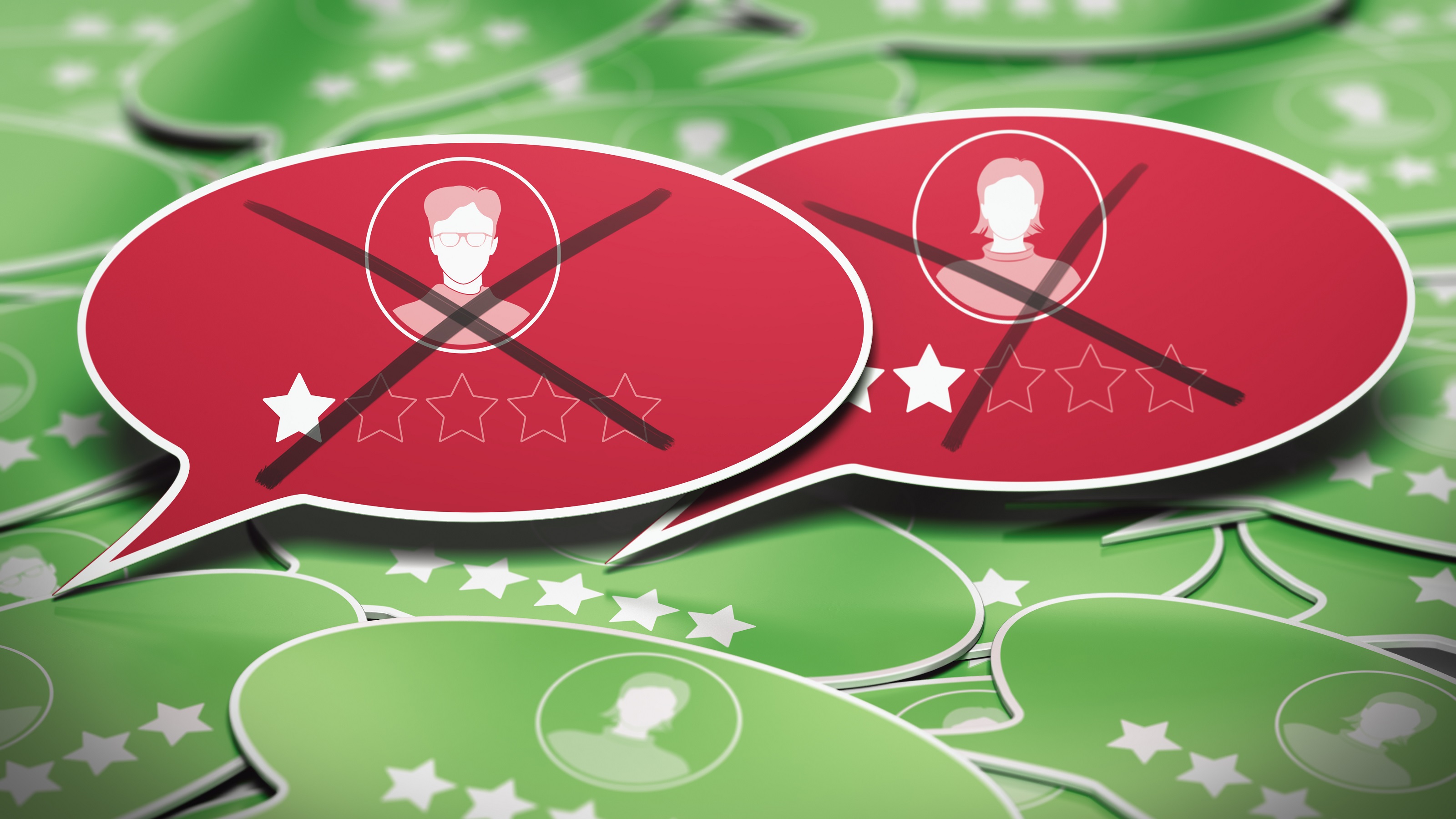
I have two questions for you:
- How often have you read a glowing online review — about a business, lawyer, physician, you name it, anything — believed the review and then bought the product, dined in the restaurant or hired the person only to be disappointed? Too often, I’ll bet you’re thinking.
- Do you know what the FTC (Federal Trade Commission), which has always had the power to outlaw fake reviews, did about the problem over the past several years? Answer: Not enough!
Until now. On August 14 this year, the FTC announced a rule that will combat fake reviews and testimonials by prohibiting their sale or purchase and allow the agency to seek civil penalties against knowing violators — up to $50,000 per violation. The rule is expected to take effect around the middle of this month.
“This is music to the ears of thousands in the business community and consumers who have become victims of misleading and outright fake online reviews,” says Damian Rollison, director of Market Insights at San Diego-based SOCi, a marketing platform that works with over a thousand brands to manage their online presence.
How consumers are harmed by fake and misleading reviews
I asked Rollison to explain the nature of fake and misleading online reviews.
“It is far too easy for businesses to buy or otherwise acquire fake or fraudulent reviews that are often very hard for consumers to detect,” he said. “Their goal is to bias people toward those businesses in an unfair way. And I think that consumers are aware that fake reviews exist online, but they don’t necessarily have the best tools to know what is real and what is fake.”
He went on, “The whole thing is insidious. Essentially, consumers are being duped into thinking that their peers are recommending products and services when, in fact, the business is behind all of this, providing it an unfair advantage. This is especially important when it comes to local business reviews and to services that are central to your life and livelihood.”
He offered examples of those services: “Dennis, just think of health, medical or legal services where we find a great deal of fake review content. Another place where it is especially critical are services that people need in an emergency. Think about a locksmith or a garage door repair service. Are they legit or scammers?”
This made me think of the calls I’ve received from readers who said they were looking for an attorney and were deeply influenced by impressive “client” reviews, only to discover that the lawyer had gotten into trouble with their state bar with the reader’s type of case.
Real or fake? Are there any clues?
You are no doubt thinking, Are there giveaways that suggest what I am reading is a fake review?
“Yes,” Rollison said. “Reviews that seem suspiciously enthusiastic, as though they are shilling for that company, sounding like a TV commercial or an advertisement, would immediately tip me off. For example, ‘This is the best carpet cleaning service in Miami,’ and phrases like that suggest to me that the people who own the business are trying to rank higher in search engines. Also, it is a sign that the review might be fraudulent. Some experts have even said that reviews that simply contain too many exclamation points, as a sign of enthusiasm, ought to be looked at suspiciously.
Which reviews to read first?
So, which reviews should we read first? The positive or negative reviews?
“A lot of people feel that it is best to read negative reviews first,” Rollison cautioned. “There is an instinct on the behalf of consumers that negative reviews are more likely to be honest. But we might not want to be too quick to assume that all fake reviews are positive, because there are examples where competitors post negative reviews of a (rival) business, and those reviews are also fraudulent. So you want to be diligent, suspicious in general and skeptical of review content that may look suspicious even though it is true.”
I asked Rollison if there are platforms that do a better job of removing suspect reviews than others.
“Let me draw a contrast between Yelp and Google,” he said. “We have done research which shows that the average rating of a business on Google is 4.2 stars (out of five), and that’s pretty high, while the average rating on Yelp is 3.1 stars. At least one of the reasons for that, we believe, is that Yelp has historically been much more aggressive in removing reviews that are suspected to be fake.”
That said, Rollison concluded, “You still need to use common sense, look for online praise followed by too many exclamation marks and be very, very cautious.”
And hopefully consumers will benefit soon from the FTC’s planned crackdown on fake and AI-generated reviews.
Dennis Beaver practices law in Bakersfield, Calif., and welcomes comments and questions from readers, which may be faxed to (661) 323-7993, or e-mailed to Lagombeaver1@gmail.com. And be sure to visit dennisbeaver.com.







